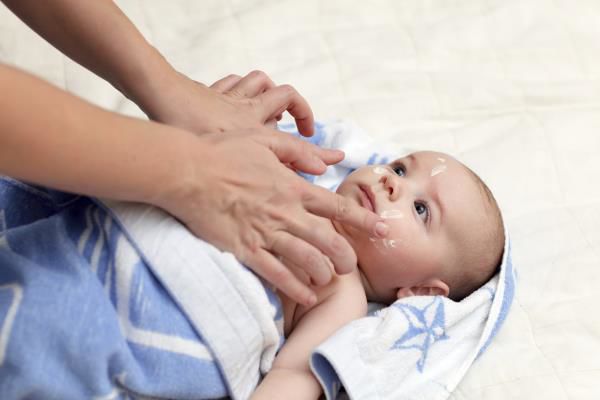What Parents Need to Know About Their Baby’s Skin Health
(StatePoint) A baby’s skin is extra sensitive, and if you’re like many parents, you may be looking for ways to reduce your child’s exposure to potential irritants while maximizing skin health. This can be particularly difficult when the products you see on store shelves contain the very ingredients you prefer to avoid: namely, petroleum, brighteners, artificial fragrances, fillers and synthetics.
New research revealing the importance of the skin microbiome—the collection of microorganisms that live on our bodies—can help point parents in the right direction. The skin microbiome is full of microorganisms like healthy bacteria and fungi that need the right environment to thrive. While you likely know how positive probiotics are thanks to yogurt commercials; you may know less about prebiotics. Prebiotics are what probiotics absorb to prosper and reproduce. Prebiotics help encourage more varied types of bacteria too, and variety is paramount for thriving skin.
For this reason, you may want to consider personal care products for your baby that are not only non-toxic, tear-free, hypoallergenic and both pediatrician and dermatologist tested, but that also incorporate prebiotics as an active ingredient.
Industry leaders incorporating prebiotics into baby care products include Dapple Baby, which offers plant-based shampoo + body wash, baby lotion and bubble bath formulated without parabens, phthalates, mineral oil or synthetic dyes. Because the brand is committed to plant-based ingredients, parents can have peace of mind knowing the products are gentle and toxin-free. Now available in the Health and Beauty Department at Walmart, more information can be found at dapplebaby.com.
Because babies explore their environment with their hands, their mouths, and pretty much everything else, parents will also want to consider the ingredients found in home cleaning products, detergents and more, steering toward options containing natural ingredients wherever possible.
During the time when a baby’s skin is most sensitive, parents can take proactive steps to limit exposure to products that use potentially irritating ingredients.
*****
Photo Credit: (c) Radist / iStock via Getty Images Plus

